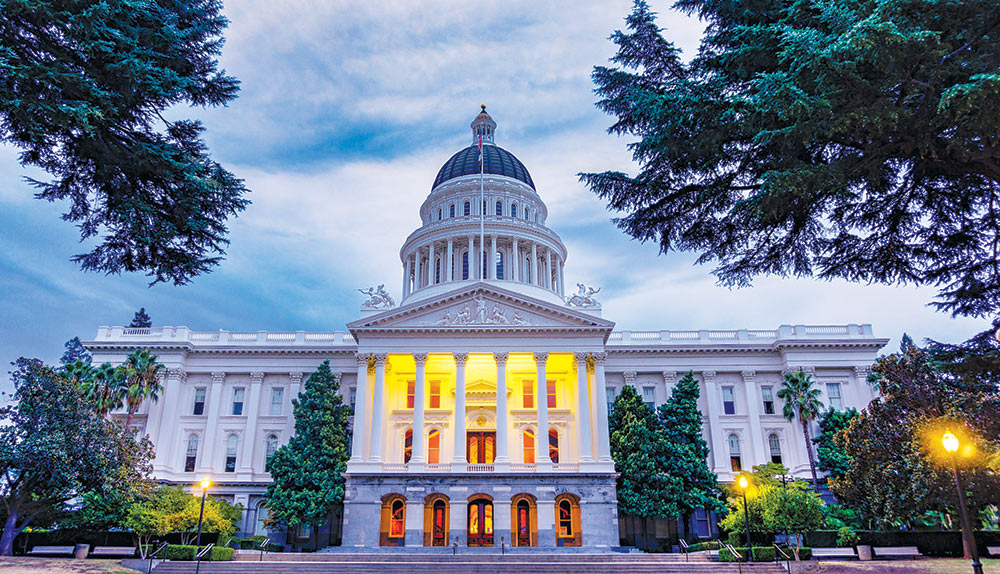With limited federal labor benefits, including increased unemployment benefits, set to expire—or at least be significantly reduced—in the coming days, California labor groups are pushing state and local lawmakers to boost labor protections in the Golden State.
Throughout the pandemic, a statewide coalition of labor advocates has urged lawmakers to extend sick leave and other benefits, which they argue will allow workers to stay home and prevent the spread of Covid-19.
In February, state Assemblymembers Ash Karla and Lorena Gonzalez introduced Assembly Bill 3216, which would offer workers various extra protections amid the pandemic. The Assembly passed the bill in June, and the Senate is currently considering doing the same.
However, in an effort to appease business groups, the legislation has been significantly watered down during the legislative process, says Maddy Hirshfield, the political director for the North Bay Labor Council.
As a result, the North Bay Labor Council and its allies are pushing local North Bay cities and counties to pass stronger local sick-leave laws, namely a 10-day sick-leave mandate for companies with over 500 employees.
Under federal rules, employers with more than 500 employees are exempt from Covid-19 sick leave rules. And, under the current version of AB 3216, employees would only receive three days of additional sick leave.
Hirschfield and other advocates, including North Bay Jobs With Justice, who support the state and local measures, say that in addition to providing workers with economic protections when they fall sick, the rule will help prevent the spread of Covid-19. For instance, if a low-income worker in the food service or hospitality industry catches the virus, they would be paid to stay home instead of being required to return to work.
“People will go to work sick if they don’t think they’re going to get paid. It’s just the reality,” says Hirschfield. “It’s a public health risk in the best of times, but during the pandemic it’s a public health nightmare to have people going to work sick.”
“If we’re ever going to flatten this curve we’ve got to use all the tools in the toolbox and providing people an incentive to stay home when they’re sick is a pretty important tool,” Hirschfield adds.
To date, nine local governments, including the cities of Santa Rosa, San Mateo County, San Jose and San Francisco, have passed local sick-leave policies since the start of the pandemic shutdown. Hirshfield says the group is pushing the Marin County Board of Supervisors to consider a version of 10-day sick-leave policy, although the board has not yet scheduled the item for consideration.
Santa Rosa passed the sick-leave extension unanimously in June. Their ruling exempted the city’s own employees from the new rule.
As one might imagine, some businesses are not happy about the state and local proposals, arguing that additional sick leave will be costly to employers who they say are also struggling due to the pandemic’s economic impacts.
An Assembly staff report states that a group of employers, including the California Chamber of Commerce, opposes AB 3216, the state labor legislation.
“[The bill] imposes staggering, significant and unprecedented new requirements on businesses of all sizes in California during a time of crisis when they can least afford it,” the report states.
In addition to expanding and extending sick leave during the pandemic, the bill would require some employers—including hotels and event centers—to offer laid-off employees their jobs back in writing once the company begins to rehire. That requirement, known as the Right of Recall, seems particularly offensive to business groups.
In a letter to the Assembly opposing AB 3216, the California Chamber of Commerce raised the threat of litigation against the state and the local governments which have already passed similar legislation. According to the Assembly staff report, the Chamber is arguing that the requirement is “the statutory right of recall contained in AB 3216 is legally suspect and would likely be struck down.”
The city and county of Los Angeles passed Right of Recall requirements for some businesses back in May.






